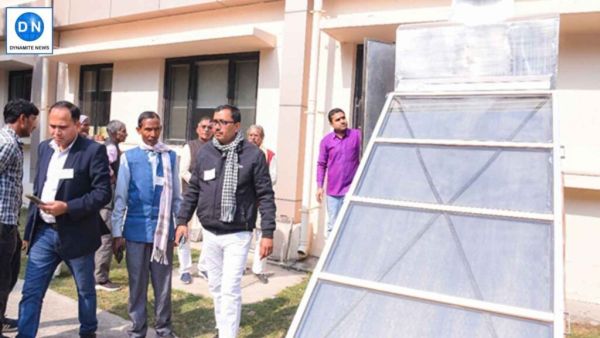

8th pay commission
Big news for central government employees and pensioners! The government has given the green signal to the 8th Pay Commission. This commission will change the salary, pension and allowances of central employees and retired personnel. If sources are to be believed, the central government can set up the 8th Pay Commission by January 2026. It is reported that the Commission will submit its recommendations to the government by the end of 2025. If everything happens according to the plan, it will be implemented from the beginning of 2026. But if there is some delay in the process, it can also be slipped by 2027.
Who will take advantage?
The 8th Pay Commission will benefit about 50 lakh central employees and 65 lakh pensioners. It also includes retired personnel of the defense sector. That is, in total, more than 1 crore people will benefit from the recommendations of this commission.
How much will salary increase?
Now the matter of the question that is in the mind of every employee- how much salary will increase? According to reports, the salary may increase by 30 to 34 percent. A report by Business Today has claimed that the minimum basic salary can increase from ₹ 18,000 to ₹ 51,480. That is, more money will be received in the pockets of the employees than before. However, this is estimated, and the final data will be clear only after the recommendations of the Commission.
What is the role of fitment factor?
Understand the formula to increase salary. The government uses fitment factor to increase salary. This factor was 2.57 in the 7th Pay Commission. This means, the new salary was fixed by multiplying the basic salary by 2.57. But during this time the dearness allowance (DA) is zero, and then the Calculation of DA begins afresh. Something similar will happen in the 8th Pay Commission, and a new basic pay will be decided.
What will be the new salary structure?
The government is trying to make the salary structure easier from the last few pay commissions.
- The 6th Pay Commission had a pay band and grade pay system.
- The 7th Pay Commission brought it further by bringing Pay Matrix, in which every employee's salary is fixed according to their level.
- The current salary contains about 51.5%, 30.9%of DA, 15.4%of HRA, and 2.2%of transport allowance.
The 8th Pay Commission will try to make it more transparent and easy. Employees hope that the new structure will be better.
How much will the burden be on the government?
If the salary increases by 30-34%, then the government may have to spend an additional ₹ 1.8 lakh crore every year. This amount is not small, but the government is considering it as necessary in the country's economy and the interest of employees.
What is the work of Pay Commission?
The purpose of the pay commission is to update the salary, allowances and pension of government employees and pensioners according to the current inflation and standard of living. Since 1946, 7 Pay Commissions have been formed, and a new commission comes every 10 years. Right now the 7th Pay Commission is in force, which started from 1 January 2016. Now the 8th Pay Commission is awaited, which will bring a big change in the lives of employees and pensioners.
-
These things can be kept in steel cans, dangerous, nutrients can be wasted

-
3 Zodiac Signs Attract Wealth On July 14, 2025

-
Railway’s big decision for safety of passengers: CCTV cameras, 74000 coaches, 15000 locomotives will be renovat

-
Study warns of ‘significant risks’ in using AI therapy chatbots

-
It Kanpur Develops Solar Dehydration Technology to Boost Farmers’ Income
